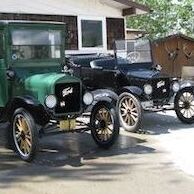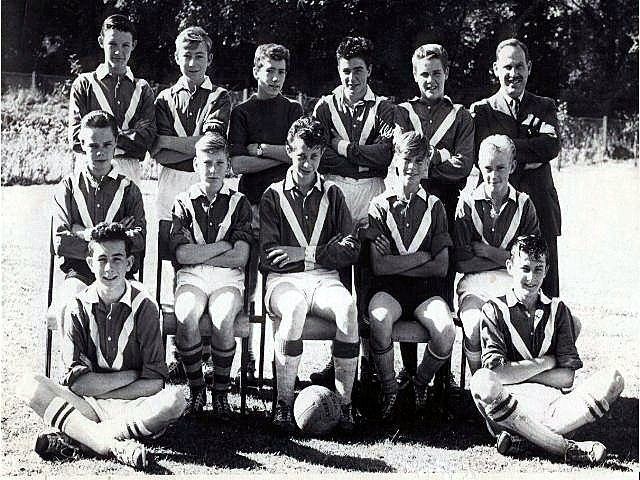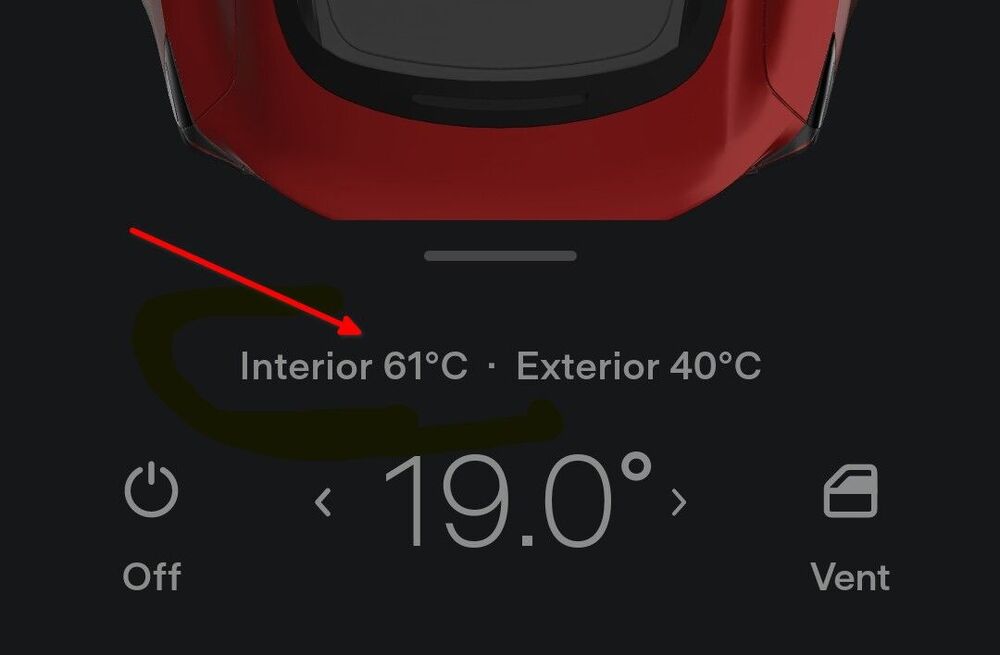Contributor Leaderboard
Popular Content
Showing content with the highest reputation on 18/04/23 in all areas
-
Derek Johnstone 1946 - 2022 It is with a great deal of sadness that I recently learned of the passing away of a valued member of this forum. Derek Johnstone, better known to us as ’Rigger’, is no longer with us. I first met Derek when he and I entered class JR1 at Westridge Secondary Modern School in Bedlington about 1959. I remember him there as a rather quiet, well mannered and very intelligent teenager who was very well liked and respected by pupils and teachers alike. He was a good classmate and I can’t remember Derek ever being in trouble for misbehaviour of any kind. I have particularly fond personal memories of being helped by Derek when struggling with the intricacies and mysteries of ’tech drawing’ which in my naivety I’d chosen to embark upon instead of needlework. He had the patience of a saint. It wasn’t just in the academic subjects he made his mark, Derek, a keen sportsman played football for the school team and went on to devote many hours of his time in training and matches with Bedlington Juniors where he was goalkeeper (pictured below in the scchool team, top row, 3rd from left). He became a keen golfer in later years, so his love of sport had clearly remained with him. After leaving school Derek became an electrician working first in his native Bedlington, at the Doctor Pit, before moving to the coalfields of Yorkshire then South Africa before returning to the UK to take up the very responsible position of overseeing safety in the Aberdeen Offshore Oil Industry. He remained in Aberdeen until his death. Derek was a family man. His marriage to New Delaval girl, Patricia (Pat) Brown, gave him three lovely sons: Kristian, Julian and Graeme. Tragically, Pat died very young leaving Derek to shoulder not only his grief but also that of the children and the responsibility for their upbringing. He seems to have done a remarkable job with Kristian now living and working in Dubai, Graeme living and working in Thailand (seemingly having followed in his father’s footseps in the offshore industry) and Julian living and working in Belfast. Derek did remarry but, sadly, once again a caring role was suddenly thrust upon him when his second wife, Irean, developed Alzheimers disease. After many, many years my path crossed again with Derek’s when he became ’Rigger’ a member of this forum. Rigger was not a frequent visitor but his posts were always informative and interesting, sharing valuable knowledge of people and places in and around Bedlington. Helpful as ever, he’d never forgotten his Bedlingtonian roots. Even in other areas of the Internet, Derek has left an an enormous legacy to anyone having have roots in Bedlington. His work ’Bedlington Soldiers Who Died in the Great War: Summaries of the brave soldiers from Bedlington and the surrounding area who did not return from the 1914 – 1918 War’ is a one-man masterpiece. (http://www.newmp.org.uk/memimages//05.%20Enlistment%20Project%20Compiled%20Version.pdf) It is, I’m sure, the result of years of patient research and writing on his part paying homage to the brave men of Bedlington who gave their lives in the Great War. I also know that this work was a tribute to his grandfather whom he loved and admired. It is not just an essay, it is a work of academic standard well worth a read and a valuable source of information to those, like myself, researching family history. Last year, Derek was diagnosed with an aggressive and inoperable brain cancer to which he succumbed after only five months. He died in November 2022 aged 76 years. His person has been described to me by his life-long friend David Cowans as ”a friendly boy and a nice man” who ”had a positive manner and a genuine, easy-going charm”. I cannot other than agree. Thank you for your contribution. Rest in Peace Rigger. Thank you to Derek’s brother Ray, David Cowans, and Glynis Lynn who have provided me with information and photos.1 point
-
The trend to Electric Vehicles is now well established, and it's inevitable that most people will be considering one in the next few years. As someone who has spent an absurd amount of time over the past decade studying the progress of EVs - and who is now well into the fourth year of running one - I'm happy to answer member's questions in this thread. As an opener, I'd offer a few key points of advice: 1) Don't listen to the media! They operate with a strong bias toward what their advertisers want to see in print. A lot of what they print is pure bull. An article in this morning's Sunday Telegraph was so laughably ill-informed it's what actually prompted this post. 2) Consider the total cost of ownership, and not the sticker price. The cost of an EV is heavily front loaded. By that, I mean that you're spending (or borrowing) to save. The extent of those savings are very likely to be a lot more than you can presently anticipate. There are still some unknowns, but if you chose wisely, those unknowns (like the soaring cost of petrol) will average in your favour. 3) Don't think that in buying a hybrid (including a Plug-In Hybrid) you're taking the first cautious step to electrification - you're not! Hybrids are the worst of both worlds, and this fact has now dawned on the buying public. Hybrid sales are falling, and many manufacturers are abandoning them. This is resulting in many tempting bargains - which you'd be very wise to steer well clear of. 4) Don't buy an EV with pouch batteries. They are cheap to produce, but the manufacturers who went this route (like BMW) have learnt a lot and are now firmly committed to cells in future. Pouch batteries swell and have a very much higher propensity toward spontaneous battery fires. Likewise, avoid like the plague any vehicle which doesn't have a proper liquid cooling system for the battery. It's truly amazing the number of buyers who shell out tens of thousands of pounds without carefully checking what they are buying here. If the salesman can answer this question (truthfully) then there's little point listening to anything else he/she has to say. 5) Don't obsess about range and so-called "range anxiety". The media loves to focus on this, but after you've bedded in your EV experience, you'll find their obsession amusing. If you want to be assured that your EV will comfortably get you where you want to go, then download the Zap-Map app onto your phone (UK only, but many other apps are available). There you will discover that there are more public charging points than you could ever dream of. 6) Charge wisely! Pretty much 95% of your charging is going to be done at home (or work) and generally on cheap rate electricity. Unlike a petrol or diesel vehicle, you will actively plan to return from long trips at a low state of charge; that's so you can take advantage of cheap home charging. You have to accept that you're going to be paying a considerable premium for some part of longer journeys, but that it will still work out cheaper than petrol or diesel. If you're crafty and take the time to plan ahead, it's still possible to "bum free power" on a long road trip. 7) Whilst it's nice to "have your own petrol pump at home" it's NOT essential to have a dedicated wall charger at home. Many people manage just fine by using the portable charger supplied with the car, plugged into an existing 13A wall outlet. Most cars will allow you to set up a schedule of when they draw power and their charging rate. Then all you need to do is to get into the habit of plugging it in immediately you return home. Overnight charging (inside the strict cheap rate hours) at the minimum rate (5A = 1.25KWh on many EVs) will often be all it takes to ensure you've plenty for next day use. You're never going to be stranded because this will provide easily enough energy to get to a fast charger in an unforeseen long-trip emergency. 8 ) Don't pay for more range than you actually need. Whilst a four-hundred mile plus range might make for good boasting points at the pub, carrying around heavy batteries that you're seldom going to need costs energy as well as money. Bladders (in my generation at least) don't go for anything like that distance, and fast chargers generally complete well before motorway diners can do their thing. ------------------------------------------- Lots more, but I have to go and wash and polish the EV. Discuss...1 point
-
Thanks Eggy! I don't know why that link doesn't work here and I didn't think to check it. It works fine for me, saved as a bookmark.1 point
-
Ah... you got me! By the time I got to 8 time was getting on, so I said to myself, "no 3G, don't mention heat pumps, etc. This is already a bit complicato, and that sort of thing will likely put more people off from reading this, so the basics won't get out. No one reading it is going to live at the North Pole, or the equator, so just K.I.S.S.". Life being life, up pops someone living at (or too near) said North Pole and dashes all my hopes and dreams! (Greta does this far better!) So, answering one of your last questions - "What improvements have you seen in the four years?" - first: it's heat pumps. 9) Try to buy a vehicle with a heat pump if you anticipate using your EV in extremes of climate. Living where the sun is strong and temperatures frequently hover around 40C it's what I miss most, and one of the main reasons why I will be trading my EV for a new one in a year or so. People decrying EVs because of reduced range in cold conditions seldom, if ever, mention that ICE vehicles also suffer from decreased range in the cold. Maybe not as much, but it's not exclusive to EVs. Not too many EVs have a heat pump, and particularly not cheaper and used ones, but they are rapidly becoming more common. "battery life, replacement and disposal cost"? : Any good EV will have a battery life way beyond the useful life of any petrol engine in mileage terms - generally several times. I've never heard anyone asking a salesman what the likely life of the engine in the car he is selling could be. Don't charge too fast too often, and you'll easily exceed the manufacturer's warranty (it's often 8 years). Disposal is another red-herring from the ICE mob: when the battery pack is below 70% capacity it will still be highly sought-after for domestic storage, and you can still expect several thousand pounds for it - on say eBay. I'd really really like to know where this oft-mentioned "landfill" is. I dream of successfully scavenging for carelessly abandoned large Lithium-ion battery packs for my planned solar photovoltaic system! A totally clapped out pack is still far too valuable in mineral terms to throw away. The only problem with EV battery recycling is that there's nothing like enough to recycle at present. Budding recyclers are generally reduced to small, marginally economic, stuff extracted from electronic equipment waste.1 point
-
1/ I enjoy researching anything I buy, but I don’t think many others can or do, using manufactures information is a good starting point, using several manufacturers can give you a clue to the others good/ bad points. But don’t expect any of them to give the bad points. 2/ Very true about front end loaded, and consider the lack of future maintenance, oil changes, air filters, exhaust etc, THEN there is the eventual EV battery life, replacement and disposal cost. 3/ Hybrids, without a hybrid I couldn’t make a round trip to the airport to pick up family! Especially in the winter, no present vehicle has the range and the lack of charging stations to make it possible. 4/ Good point. 5/ Range is the most important consideration in my location, (see #3) at present lack of charging stations, cold weather reduces range considerably and is further reduced by the need for winter heat, windows and body. With the eventual addition of charging station this will add to the range but a lot of time to journey. 6 and 7/ 100 % of charging will be at home. The cost of electricity has skyrocketed recently (ours has) while petrol prices have also risen, the price of electricity is sure to go much higher as the demand grows. (And the Greener we get)I expect the electrical distribution infrastructure system will have to be improved to meet the new demand, especially in the older housing areas, (most houses don’t have garages, how do you safely plug in? And multi vehicles) we don’t have off peak electrical rates. 8/ 300 mile minimum WINTER (-20c) driving would be my minimum. Newer, lighter and recyclable batteries must come first. Threegee, What improvements have you seen in the four years? What is it and what are its good points? Range? MPG $ equivalent ? Typical trip milage? Any negatives?1 point
-
Headline: Cramlington drink-driver flipped car on duel carriageway in busy morning traffic then fled on foot Oh, dear! Still, the so-called quality papers have all the best information. Today's Telegraph informs us that Prince Harry is 48 years old. I knew I'd slept in, but surely not an entire decade?1 point
-
1 point


.thumb.jpg.7493ddab4a696108cf2b849323d3c155.jpg)



